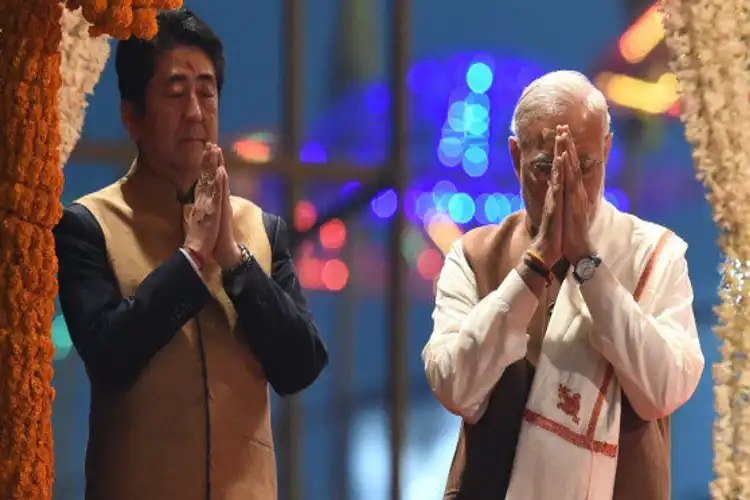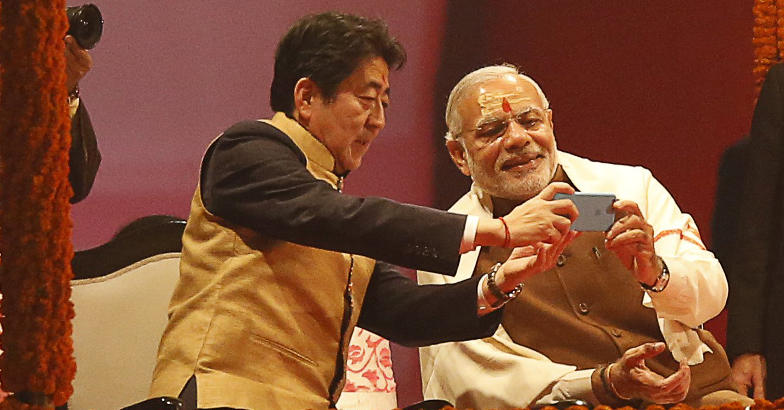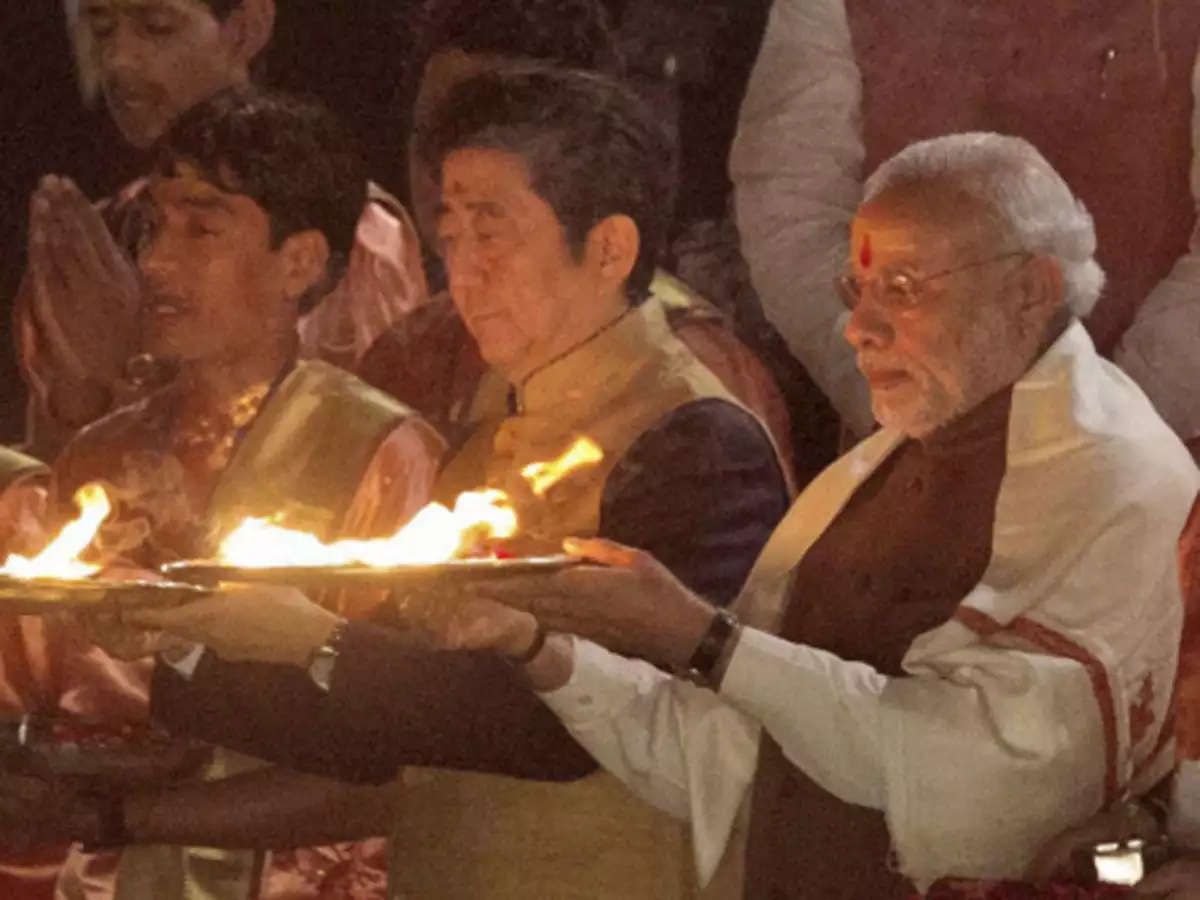
Tripti Nath/New Delhi
Shinzo Abe’s assassination has left both Japanese and Indians in a state of shock and grief. Japan has never seen such political violence in its post war history of 75 years. Abe had visited India five times and shared a good rapport with Prime Minister Narendra Modi.
Modi expressed his grief saying he is shocked and saddened beyond words. The government has announced one-day State mourning in India on July 9 as a mark of respect to the departed dignitary.
Shoichiro Takaji, Bureau Chief of Kyodo, a Japanese news agency, told Awaz-The Voice that the attack is very uncharacteristic of Japanese society. Japan has never experienced this kind of gun violence in which a former Prime Minister has been shot in this manner.
Professor Rajiv Ranjan, who teaches Japanese History and language in Delhi University, said: “Shinzo Abe was a very popular Prime Minister. This is not something that one would expect in Japan. The country has a very different culture compared to the rest of the world. You cannot find a more peaceful country.”
The NHK, the Japanese public news broadcaster reported that Abe was attacked by a man, who had worked with the Japanese Maritime Self-Defence Forces. Apparently, he had a personal grudge against the former Prime Minister. Further details are yet to come.
Professor Ranjan added that the last incident that shook Japan was in 1970 when Mishima Yukio, a 45- year-old writer committed ‘Hara-kiri ‘(ritual suicide also known as disembowelment) in Tokyo. A symbol of right-wing nationalism, in Japan’s post War period, Mishima took this extreme action as he felt that the Japanese government had compromised its sovereignty by renewing the Japan United States security treaty.

Shinzo Abe shared a great rapport with Prime Minister Narendra Modi
Mishima entered a military base because he wanted to awaken the Japanese Military Self Defence Forces to reject the Constitution and install the Japanese Emperor as a true ruler. Two years before he committed ‘Hara-kiri’, he was nominated for the Nobel Prize in Literature.’’
Professor Ranjan says that Abe tried his best to bring about amendments to the Constitution but could not succeed because it is a very complex process. “He had also been working on ensuring the rise of Japan while keeping the interests of the Japanese people in mind. Abe’s visit to the Yasukuni shrine in Tokyo became very controversial. This is where all the Japanese convicted war criminals are interred.”
Abe also had a long association with India. He had visited India on several occasions that’s why Indians also have fond memories. He had visited Varanasi, where Prime Minister Modi and he together performed the ritualistic arti together along the Ganga ghats.

Shinzo Abe and PM Narendra Modi performing the 'Ganga Arti' in Varanasi
Abe shared an extraordinary rapport with Prime Minister Modi. “This was reflected in the hospitality he extended to Indian Prime Minister Narendra Modi. “In a rare gesture during the India-Japan summit in 2019, Abe even invited Modi to his family holiday home in the picturesque Yamanashi prefecture, two hours west of Tokyo.
ALSO READ: Former Japanese PM Shinzo Abe declared dead
The images of Prime Minister Abe attending the 'aarti' in Varanasi and his earnestness to get the Shinkansen (bullet train) running in India will always be a part of his legacy in India.
